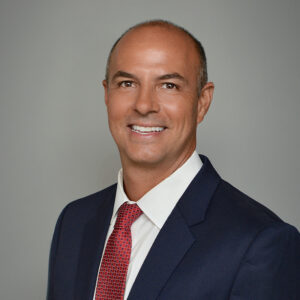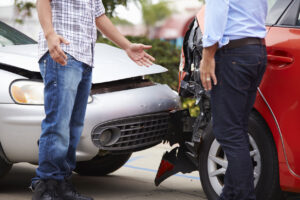
Is it a mistake to admit fault after a car accident? Yes, it is, in Orlando or anywhere else. Of course, you might have already made this mistake.
If you did, it’s not good news, but it’s not necessarily fatal to your claim. If your accident wasn’t serious, it might not matter at all. An admission of fault is also more likely to damage a bodily injury claim than a property damage claim.
Florida’s No-Fault Car Accident Insurance System

Florida state law, not Orlando municipal law, governs most of Florida’s car accident law.
Florida is one of a dozen states that applies a no-fault car accident bodily injury compensation system in most (but not all) incidents.
PIP Insurance

Florida requires every motorist with a vehicle registered in Florida to purchase $10,000 worth of personal injury protection (PIP) insurance. If you suffer an injury accident, PIP will cover up to 80% of your reasonable medical expenses and up to 60% of lost wages, regardless of whether or not the accident was your fault. You cannot sue the other driver unless you qualify to exit the PIP no-fault system(see below).
PIP will also cover injuries to your passengers, anyone living in your household, and anyone driving your car with your permission (if they don’t have PIP insurance). Consequently, as long as PIP will cover their claim, an admission of fault will not harm any of these parties, including you.
PDL Insurance
Every Florida driver must also purchase $10,000 in property damage liability (PDL) insurance. PDL is not part of Florida’s no-fault system. Instead, a motorist who suffers property damage (typically damage to their vehicle) must file a third-party claim against the PDL policy of the at-fault driver.
PDL does not cover damage to your vehicle, although you can purchase optional collision insurance that will. Consequently, an admission of fault could prevent you from collecting damages under the other driver’s PDL policy.
PDL also covers other drivers specifically listed on your PDL policy, and other people driving your car with your permission.
Serious Injuries and Other Exceptions
Florida allows drivers who suffer ‘serious’ injuries to escape Florida’s no-fault system and directly sue the at-fault driver for full personal injury damages, including non-economic damages such as pain and suffering. A driver’s injuries are ‘serious’ per state law if they involve:
- Significant and permanent loss of an important bodily function;
- Permanent injury within a reasonable degree of medical probability;
- Significant and permanent scarring or disfigurement; or
- Death.
If you admit fault in a Florida car accident, and if the other driver’s injuries qualify as ‘serious,’ they can sue you for damages. That could cause you a major problem if you don’t carry bodily injury liability insurance (and even if you do). The problem is that Florida is one of only a few states that do not require their drivers to purchase bodily injury liability insurance.
If you didn’t purchase liability insurance, you get into a car accident that causes catastrophic injury to the other party, and you admit fault, it’s possible that a court might seize your personal assets (your car, your home) to satisfy a large personal injury judgment against you.
Circumstances in Which You Might Admit Fault
You might be more likely to admit fault under the following circumstances.
You Were Partially at Fault
If you were partially at fault, you might falsely believe that you were 100% at fault, and you might say so. This is where injustice could creep in. Under Florida’s contributory fault law, you are entitled to partial damages as long as you were no more than 50% at fault.
A court will subtract your percentage of fault from your damages—it will subtract 20% of your damages if you were 20% at fault, for example. If you were more than 50% at fault, you will receive no damages at all.
You Falsely Believed Yourself To Be at Fault
Perhaps you misunderstood traffic laws, for example, especially if you are from out of town. The potential for misunderstanding is one of the major reasons why you should not admit fault under any circumstances.
You Suffered a Head Injury
If you suffered a head injury, you might have been woozy after the accident. Suppose you absent-mindedly utter ‘yeah’ when the responding officer asks you if you caused the accident.
A head injury can render you temporarily suggestible.
The Insurance Company Tricks You Into a False Admission
Insurance adjusters are not looking out for your best interests and will utilize tactics designed to escape or eliminate liability for your claim. One example is asking you pointed questions intended to have you falsely admit responsibility.
You’re Careless in Your Use of Social Media
Don’t ever talk about your case on social media. The insurance company or the other driver can use your social media posts as evidence against you, both in court and at the settlement table. If you say anything that, even taken out of context, sounds like an admission of fault, the other side can use it against you.
In fact, it is best to completely suspend your social media activity while your case is pending. If this is unbearable to you, at least avoid talking about your case on social media. If you are claiming injury compensation, don’t upload any photos or information that might make you seem healthier than you really are.
Finally, don’t accept friend requests from anyone you don’t know, as it could be an insurance company investigator.
An Orlando Car Accident Lawyer Can Help You Avoid Claim-Damaging Mistakes
There are a thousand ways to damage or even destroy your car accident claim without realizing it. There are more than a few ways to reverse liability, where you end up paying the at-fault driver for their own mistake.
An experienced Orlando car accident lawyer from Norden Leacox Accident & Injury Law can help you avoid these mistakes. They can also try to fix mistakes you may have already made. Talk to a lawyer; your claim might be worth more than you think.
